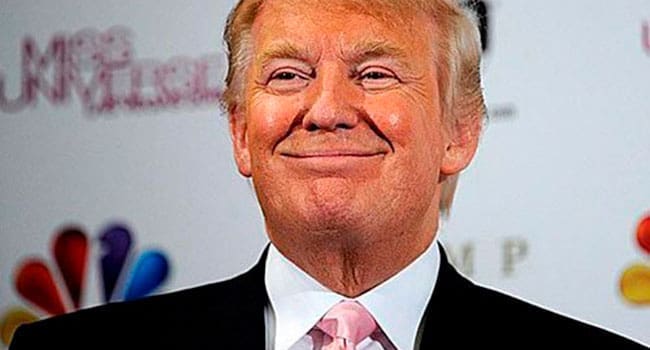 In a few months, Donald J. Trump will be sworn in as the 45th president of the United States. The media pundits are flabbergasted by his electoral triumph. His improbable success on election night is seen as inexplicable.
In a few months, Donald J. Trump will be sworn in as the 45th president of the United States. The media pundits are flabbergasted by his electoral triumph. His improbable success on election night is seen as inexplicable.
What exactly does Trump’s electoral victory signify?
The liberal media has been quick to characterize the Trump victory as the last gasp of an angry white tribe lashing out in a final act of defiance against the demographic forces that are slowly changing the complexion of the U.S. electorate. To the left, Trump’s victory is nothing less than a racist repudiation of the legacy of Barack Obama, the U.S.’s first African-American president; a xenophobic defence of white privilege by a class that sees its political and economic power slowly and inexorably slipping away forever.
Indeed, the media largely portrayed the campaign in racist and misogynistic terms. Trump was a candidate who routinely demeaned and insulted women and minorities, showed no respect for due process of law, and cultivated fear and hatred to mobilize his base. When Hillary Clinton referred to his supporters as a basket of deplorables, the media didn’t criticize her; they largely agreed that her characterization of his base was consistent with their description of his campaign.
Exit polling, however, indicates that these issues didn’t weigh very heavily on the electorate. Trump did far better with women and Hispanics than the polls had predicted; and while the African-American vote broke overwhelmingly in favour of Hillary Clinton, Trump got a much higher percentage of that vote than the Republicans got in 2012.
There is, however, another way of characterizing this election, not in terms of xenophobia and race, but in economic terms. On Nov. 8, an increasingly displaced blue-collar working class, a group ignored by both the left and the right, voted for their pocketbook. Their repudiation of Obama’s legacy was not motivated by race but by the ineffectiveness of his policies. The aggregate economic indices notwithstanding, those policies have not eased the plight of the working class. They have not created more employment for them or improved their wages.
It is ironic that a New York billionaire real estate developer would succeed in convincing the U.S.’s blue-collar workers that he could be their champion and that he could restore their economic well-being.
The challenge will be to deliver on that promise. The economic dislocations transforming the blue-collar working class are not going to be reversed with a bully pulpit, the threat of higher tariffs on imports or tearing up free trade agreements.
Blue-collar jobs are declining because of long-term economic transformations that continue regardless of who occupies the White House. Moreover, protecting legacy industries risks holding back the cutting edge industries of tomorrow. The challenge is to provide meaningful employment for displaced workers while maintaining an economic environment that allows the innovative industries of the digital economy to flourish. Unfortunately, the Facebooks and Apples of the world that define our economic future have little need for unemployed coal miners and steel workers.
There are already a few preliminary conclusions from the 2016 electoral results. The great Roosevelt coalition that heralded the rise of the Democratic Party to national power is on its last legs. One by one, the pillars of that coalition, rural households, southerners, industrial blue-collar workers, have peeled away. All that’s left now is the urban centres and their inhabitants. A map of voting patterns by county is instructive – population-dense oases of Democratic blue surrounded by a never-ending sea of Republican red.
The Republican Party is now the party of the blue-collar working class, having transformed in two generations the most stalwart of the Democratic Party’s base. Should that trend continue, then the Electoral College map will undergo a tectonic shift, one that will eliminate the inherent advantage that Democratic candidates have enjoyed for the last half-dozen election cycles. It also means that there is a fundamental disconnect between large segments of industrial union’s rank and file and their union leadership. Something will have to give.
Trump was an unlikely candidate who has emerged even more improbably as the champion of the working class. His task now is to ensure the U.S.’s long-term economic prospects while protecting those workers least able to adjust to that economic future. How this task is to be achieved, indeed whether it is even achievable, will define his presidential legacy.
Joseph Micallef is a historian, best-selling author and, at times, sardonic commentator on world politics.
Joseph is a Troy Media contributor. Why aren’t you?
The views, opinions and positions expressed by columnists and contributors are the author’s alone. They do not inherently or expressly reflect the views, opinions and/or positions of our publication.


